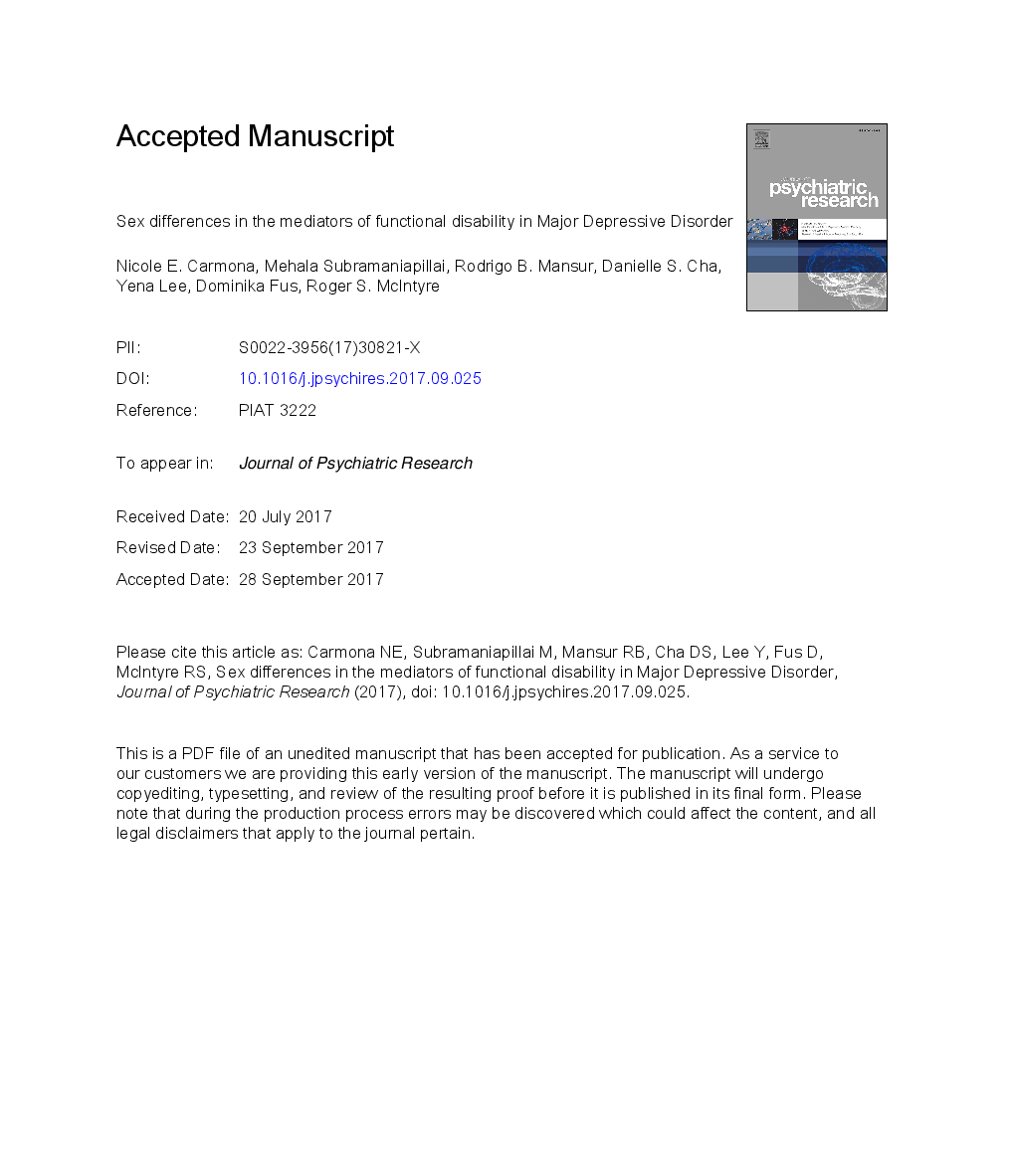ترجمه فارسی عنوان مقاله
اختلالات جنسی در میانجیگران اختلال عملکردی در اختلال افسردگی عمده
عنوان انگلیسی
Sex differences in the mediators of functional disability in Major Depressive Disorder
| کد مقاله | سال انتشار | تعداد صفحات مقاله انگلیسی |
|---|---|---|
| 125909 | 2018 | 32 صفحه PDF |
منبع

Publisher : Elsevier - Science Direct (الزویر - ساینس دایرکت)
Journal : Journal of Psychiatric Research, Volume 96, January 2018, Pages 108-114
ترجمه کلمات کلیدی
اختلال افسردگی عمده، ناتوانی عملکردی، تفاوت های جنسی، مراقبت مبتنی بر اندازه گیری،
کلمات کلیدی انگلیسی
Major Depressive Disorder; Functional disability; Sex differences; Measurement-based care;

